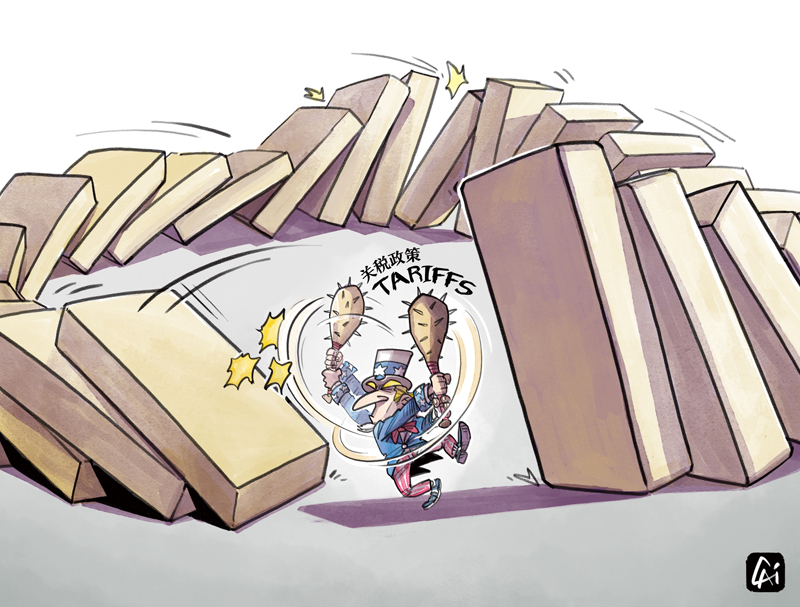Washington needs more holistic view of the world: China Daily editorial
China Daily | Updated: 2019-06-18 19:59

A lot is happening as the world counts down toward the anticipated meetings on the sidelines of the G20 summit in Japan between US President Donald Trump and the leaders of countries with which his country is at or threatening a trade war.
Little appears to be in favor of those under threat of exorbitant US tariffs. They seemingly either give in to Washington's requests, or see harsher US tariffs befall their economies.
If hasty tweets do work as they are meant to, the G20 gathering near the end of June may witness a historic bumper harvest for Washington's trade bullying. That way, the planned G20 agenda may well end up on the sidelines of the US president's one-on-one meetings.
No one can tell whether all the meetings Washington wants will materialize, or, if they do, how they will play out. However, Washington can thank itself for lowering expectations.
The US Trade Representative's Office has begun a weeklong testimony about imposing additional tariffs on another $300 billion worth of Chinese exports. India has been stripped of trade privileges under the Generalized System of Preferences. Japan and several other countries face similar punitive tariffs once trade negotiations fail to meet Washington's demands.
Yet despite all the clamor about making America "great again", the idea to reshuffle bilateral trading ties to make them one-sidedly favor the United States is doing the very opposite. New Delhi has decided to impose retaliatory tariffs on 28 US products. Beijing, after a reciprocal counter-move in the first-round tit-for-tat, is getting increasingly serious not just about a coming round two, but a protracted, all-round standoff.
Following serial commentaries aimed at rallying domestic public opinion, the top Communist Party of China journal Qiushi summed it all up with the vow to "fight it out till the end". It centered around Beijing's core claims regarding the trade spat, warning: "No one, no force should underestimate and belittle the steel will of the Chinese people and their strength and tenacity to fight a protracted war."
Not that Beijing believes it will emerge unbruised from a trade war. But it is counting on its people's incomparable endurance to be an ultimate "systemic advantage". But very much like the White House, decision-makers in Zhongnanhai want to evade a full-blown trade war. Since neither side appears ready to really slam the door shut on further negotiations, they should refrain from escalating tensions, and engage each other in a more constructive manner.
In anticipation of the damaging consequences of the unfolding trade war, some of Huawei's key US suppliers are reportedly lobbying the White House to ease its ban on the Chinese company. "This isn't about helping Huawei. It's about preventing harm to American companies," an insider was quoted as saying.
That is better understanding of the nature of trade.
Washington might want to lend an ear to the advice of Lao Tzu who cautioned that one who is too insistent on his own views finds few to agree with him.
























